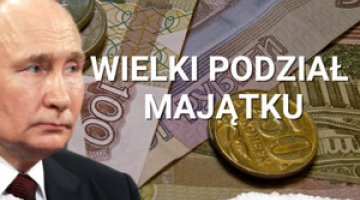Turkey and Russia: cooperation instead of conflict
On 29 June, at Russia’s initiative, a telephone conversation was held by the Presidents of Russia and Turkey, Vladimir Putin and Recep Tayyip Erdoğan. According to the Kremlin, they agreed to resume the political dialogue, and announced a lifting of sanctions and a personal meeting between the Presidents. Ankara has stressed the need to intensify bilateral cooperation. The conversation took place after numerous conciliatory gestures from the Turkish side, including a letter Erdoğan sent two days earlier, in which he regretted the shooting down by Turkish forces of a Russian bomber jet in November; he offered his condolences to the family of the pilot, and expressed his desire to resume dialogue and return to the traditionally friendly relations with Russia. A meeting between the two countries’ foreign ministers was also scheduled to take place on 1 July in Sochi.
Commentary
- The crisis in Turkish-Russian relations erupted after a Russian military aircraft was shot down after violating Turkish air space (24 November), and was the culmination of an acute conflict of interest between the two states in Syria (for example, the direct victim of the Russian military intervention in Syria was the Syrian Turkmen forces and civilians, whom the Turks were supporting). As a consequence of the crisis political contacts between the two countries were frozen, economic sanctions imposed, and the proxy war in Syria and southern Turkey worsened (further Russian attacks on pro-Turkish forces, Russian support for the Kurds of the PKK, the de facto closure of Syrian airspace to Turkish air force), which significantly limited Ankara’s room for political manoeuvre.
- The change in Turkey’s stance towards Russia is part of a wider revision of its policy. Erdoğan is currently focused on domestic issues: completing the process of rebuilding the state at the constitutional level, and destroying the irredentists of the Kurdistan Workers’ Party, at the expense of the hitherto very ineffective process of regional expansion. The symbol of these changes is the removal from his post (22 May) of Prime Minister Ahmet Davutoğlu, who had been the driving force behind Turkey’s active and confrontational foreign policy. The pro tem normalisation of relations with Russia would help Ankara to focus on domestic issues and weaken the PKK. In the wider perspective, cooperation with Russia would give Turkey the chance to protect its heavily restricted interests in Syria (the Turkmen minority) and enhance its position with regard to the West. This is important for Ankara in the face of its growing disputes with the USA (mainly on the issue of the Syrian Kurds) and the EU (cooperation on migration issues and the process of integration with the EU in the light of the state of democracy and policy towards the Kurds). For Russia, cooperation with Turkey (in addition to economic issues) would increase its room for manoeuvre in the Middle East (for example, by counterbalancing its dependency on Iran), would boost tensions within NATO and between Turkey & Europe. For both parties, therefore, the rapprochement could be strategic in nature.
- The future nature of Turkish/Russian relations remains open. Much still remains to be decided, such as issues connected to compensation and the Turkish investigation into last November’s crisis. Detailed agreement on Syrian and regional matters will be even more difficult. However, we may assume that the willingness to make concessions on the part of Turkey and a mutual willingness to cooperate will allow the parties to work out an appropriate model for their relationship.




